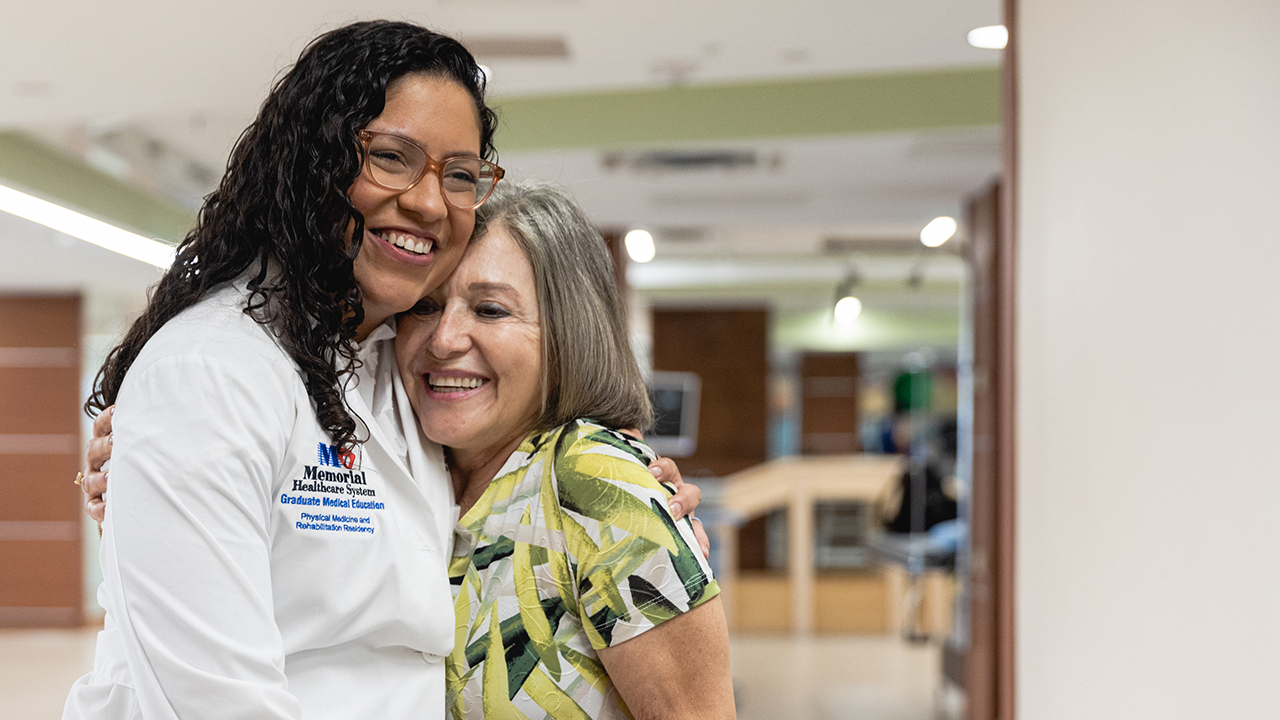Neurological Disorders
Our rehabilitation team provides specialized treatments for people with neurological disorders.
Support Group Calendar
Memorial Support Groups
To learn more about inpatient and outpatient services, call:
954-518-5725What Is Neurorehabilitation?
Neurorehabilitation helps improve function and quality of life for people with neurological injuries and diseases. It includes many types of therapy and procedures, including those to relieve pain.
At Memorial Rehabilitation Institute, physical medicine and rehabilitation doctors (physiatrists) lead our neurorehabilitation teams. Several of our physiatrists have additional training in pain management. We work closely with neurologists and neurosurgeons at Memorial Neuroscience Institute and other team members including:
- Physical, occupational and speech therapists
- Orthotists who make and fit braces and splints
- Pharmacists
- Psychologists, neuropsychologists and social workers
Throughout care, we assess the effectiveness of treatment, adjusting your care plan as needed. This personalized strategy helps you get the most out of neurorehabilitation.

Juan’s Stroke Rehabilitation Story
To learn more about inpatient and outpatient services, call:
954-518-5725
Intensive Therapy was Key to Recovering From Cristina’s Partial Paralysis
A loving family and a dedicated team at Memorial rehabilitation Institute helped Cristina get back on her feet after her spinal cord inflammation.
It matters to you. It matters to us.
Quality and Safety Data for Memorial Healthcare System
Our goal is to provide our patients with the information they need to make informed choices for themselves and their families.
View Quality and SafetyYou have a right to know about pricing
We want to give you the information you need to make important healthcare decisions, including the costs of our rehabilitation services.
View PricingMyChart Portal
View test results, schedule follow-up appointments, request prescription refills and more.
Login or Sign-up to MyChart
Patient- and Family-Centered Care
We treat patients and family members as partners in healthcare.




